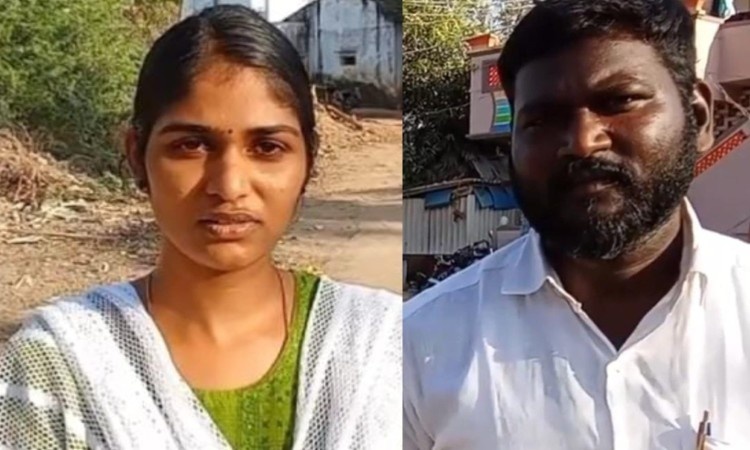In a shocking incident that has reignited concerns about rising domestic violence in Tamil Nadu, a woman councillor was hacked to death by her husband late Thursday night, allegedly following suspicions of an extramarital relationship.
The victim, S. Gomathi, was the councillor of Ward 26 in the Thirunindravur Municipality, located around 40 kilometers from Chennai. Police say the attack was the result of a personal dispute with her husband, Stephen Raj, a local political functionary affiliated with the Viduthalai Chiruthaigal Katchi (VCK). Official records, however, show Gomathi had contested as an Independent candidate.
The couple had been married for nearly a decade and lived in Periya Colony with their four sons. According to investigators, their relationship had been strained for several months due to Stephen Raj’s suspicions regarding Gomathi’s alleged friendship with another man.
How the Incident Took Place?
On Thursday, Raj reportedly received information that Gomathi was meeting the man near Jayaram Nagar in Thirunindravur. Enraged, he rushed to the spot and confronted her. An argument broke out between the two, which quickly escalated. In a fit of rage, he pulled out a concealed knife and stabbed her multiple times. Gomathi collapsed at the scene and succumbed to her injuries before help could arrive.
“Local sources say Gomathi’s friendship with another man irked her husband Stephen Raj and the couple have had frequent quarrels on the same,” a police source said.
After the incident, Stephen Raj surrendered at the Thirunindravur Police Station. He has been taken into custody and is facing murder charges. The Thiruvallur police are currently conducting a detailed investigation. Gomathi’s body was moved to the Thiruvallur Government Hospital for a postmortem examination.
A Pattern of Violence Within Homes
Gomathi’s killing is not an isolated case. Tamil Nadu has witnessed a disturbing rise in violence against women within the confines of marriage and family over the past few months.
On June 30, Lokeshwari, a 22-year-old woman, died by suicide just three days into her marriage in Ponneri, allegedly following a dispute over dowry demands. A day earlier, 27-year-old Ridhanya also took her own life after reportedly enduring severe mental and physical abuse from her in-laws. In heartbreaking voice messages to her parents, she said she could no longer withstand the suffering.
Apart from domestic violence in another tragic case, Ajith Kumar, a 27-year-old temple guard, died in police custody. The postmortem revealed signs of prolonged physical torture, highlighting concerns about custodial violence in the state.
Murders Decline on Paper, But Domestic Crimes Persist
According to official data, 340 murders were reported in Tamil Nadu during the first quarter of 2025, a 3.4% decrease compared to the same period last year. However, rights activists caution that the nature of these crimes—particularly involving spouses or close family members—has become increasingly brutal.
While Gomathi’s position as a public representative might suggest a degree of social standing or protection, her death underscores the vulnerability of women, even in positions of power, to domestic violence.
“This is not just about statistics; it’s about the spaces where women are supposed to feel safe — their homes — turning into crime scenes,” said a women’s rights advocate based in Chennai.
Call for Action
Spousal violence and murders are increasingly becoming a disturbing trend across India, cutting across states and communities. Incidents similar to the tragic killing of councillor S Gomathi in Tamil Nadu, where intimate partner disputes escalate into fatal attacks, are being reported nationwide. A significant proportion of crimes against women involve “cruelty by husband or relatives,” reflecting deep-rooted issues of domestic abuse.
From cities like Bhopal and Indore to rural areas, cases of husbands murdering wives over suspicions of infidelity, dowry demands, or family disputes are alarmingly frequent. Despite legal protections, underreporting, lack of adequate support systems, and social stigma continue to prevent many women from seeking help.


